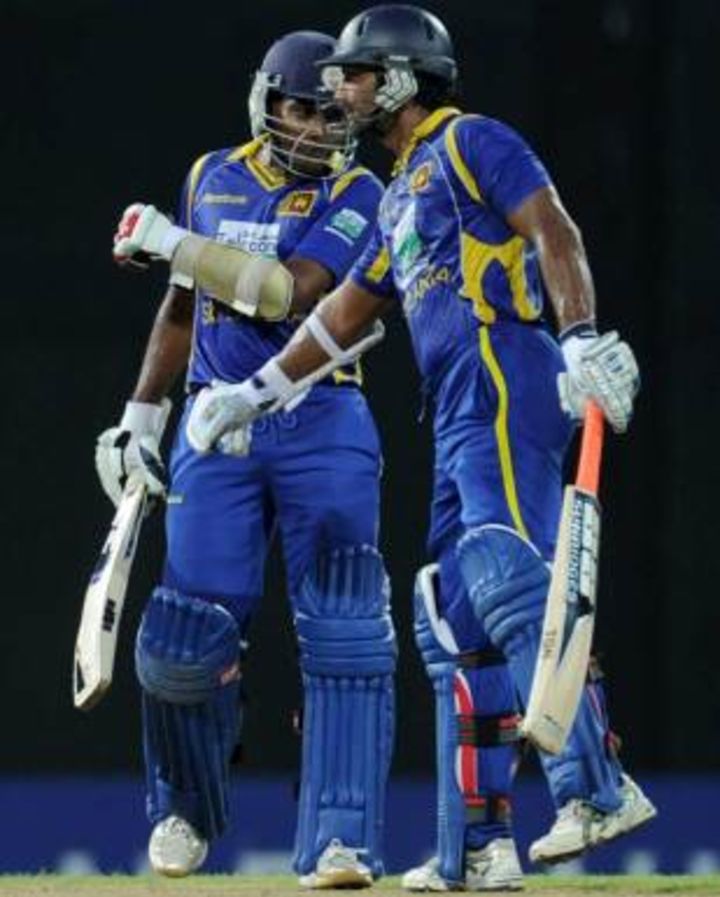Tightrope walk for Sri Lanka's IPL players
The IPL's decision to not let Sri Lankan players play in Chennai this season because of political tensions has put the country's cricketers in a difficult position

The IPL's decision to cut Sri Lankan participation in the league in Chennai following political tensions, combined with the public reaction to that at home, has left the players walking a political and professional tightrope a week before their scheduled departure for India.
The worst affected players are Chennai Super Kings' Nuwan Kulasekara and Akila Dananjaya, who were advised not to join their team in Chennai until further notice before the IPL's decision on Tuesday evening. They had planned to travel to Chennai on April 1, along with several other Sri Lanka players, but will now put those plans on hold.
The 11 other players from Sri Lanka will seemingly not, at this stage, be facing major disruptions to their tournament, apart from skipping the single game in Chennai on their round-robin schedule. However, Mahela Jayawardene and Kumar Sangakkara are both captains of their sides in addition to being key players and their absence could be crucial for their franchises.
Sri Lanka Cricket has expressed confidence in the BCCI's commitment to ensuring the safety of the Sri Lankan players. An SLC statement released this afternoon said, "SLC has written to the president and to the secretary of BCCI and received assurances that the BCCI will take all necessary steps to ensure that the players feel safe and action will be taken to ensure that the players' safety is paramount."
SLC could hardly have reacted any other way, given the way its finances are linked to, and their plans shaped around, the IPL. The board cleared Sri Lanka's international schedule - agreeing to do away with a Test tour of the West Indies - so that its players are available throughout the IPL. SLC is clawing its way back from huge debt after building two new stadiums and renovating a third for the 2011 World Cup, and can scarcely afford to lose the 10% cut of player salaries it receives for providing no objection certificates for their contracted players. The players' 2013 contracts also allow SLC to cease salary payments to IPL cricketers, for the duration of their time with their franchise.
In Sri Lanka's public and political sphere, the recent increase in political activism in Tamil Nadu against the Sri Lankan government's treatment of Tamils has largely been met with anger and cynicism. Some Sri Lankan politicians have accused the government of Tamil Nadu of disrupting the bilateral reconciliation process, while prevailing anti-India sentiment has been strengthened among parts of the populace. Reports of attacks on Sri Lankan Buddhist monks who were visiting Tamil Nadu have not helped the situation either, nor has India's refusal to side with the Sri Lanka government in an ongoing UNHRC resolution in Geneva on the civil war.
All this means the players are put in a somewhat difficult situation. They will want to play in the IPL, for themselves, and to some extent because the board has gone to such lengths to allow them to play a full tournament. On the other hand, they may risk being seen as disloyal mercenaries among some sections of the public. Sri Lanka fans have never really warmed to the IPL, and have been particularly vocal in their condemnation of domestic Twenty20 after two Test tours were removed from the 2015 schedule to accommodate the IPL and SLPL. For many fans, this latest episode will only add to their dismay at Sri Lanka's internationals playing in India for two months.
Andrew Fidel Fernando is ESPNcricinfo's Sri Lanka correspondent. He tweets here
Read in App
Elevate your reading experience on ESPNcricinfo App.